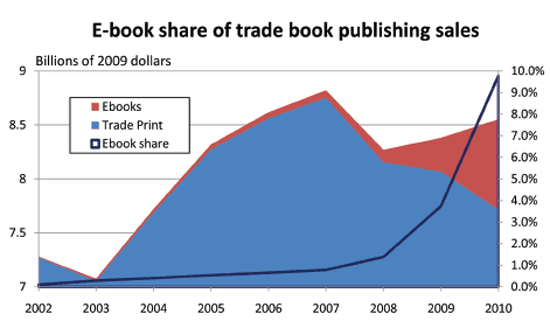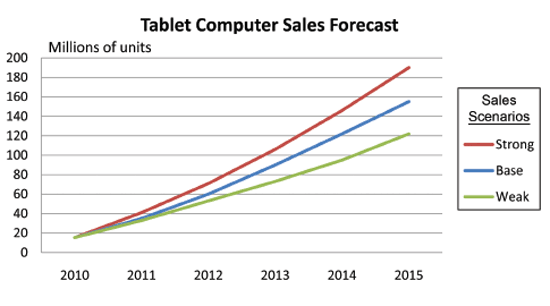If we rewind a few years and you ask a guy what a great day according to him would comprise, he’d most likely say relaxing on the beach, with a couple of beers and a good book. If you come back to this era and reiterate the question to the same guy, his seemingly unchanged answer would have inconspicuously replaced that yellowing book for a sleek, new tablet.
The media market for tablets boomed in 2010, with Apple’s first iPad and Amazon’s Kindle DX Graphite and Kindle 3 making a stunning entry. Within their first year, the tablets sold 15 million units, doubling the size of the electronic reader market. Towards the end of 2010, Amazon announced that their e-book sales had surpassed the sales of paperbacks, in the United States, for the first time ever.
According to a new study by RISI, by 2015, approximately 200 million tablets and e-book readers are estimated to be sold in North America; thereby substituting printed newspapers, magazines and books with their digital counterparts. This dramatic increase in the ownership of tablet computers is expected quadruple the sale of e-books, which at present, are dominate by paperback sales.
The study also takes into account the effect of media tablets over the paper publication markets in North America and Western Europe, over the next 15 years; projecting a fall of over 20% in the paper use in newspapers, magazines and books. Presently, several newspapers have also started publishing their news on their websites, online; to cater to the new generation of readers, who prefer the digital medium over print.
While the developed nations adapt to electronic books and magazines, they would still be a good number of old school folks out there, who’d prefer the good old book and bookmark to their electronic forms.
Though these electronic forms will offer easier and modernized navigation, they come with heaps of baggage. Soon, there will be a steep rise in number of e-book torrents floating around the World Wide Web and books and magazines will be downloaded and shared for free; like songs, movies and TV shows are today. Imagine if J.K Rowling had released the Harry Potter series in 2025; she definitely wouldn’t have scaled the 450 million copy sales peak that she did.
With startling figures, as projected by the RISI, it is not preposterous to claim that electronic books are going to do to paperbacks, what the MP3 did to audio CDs; well in developed nations, at least.
You could also take a look at Pulse News Reader for the iPad and the LeapPad Tablet for kids.












